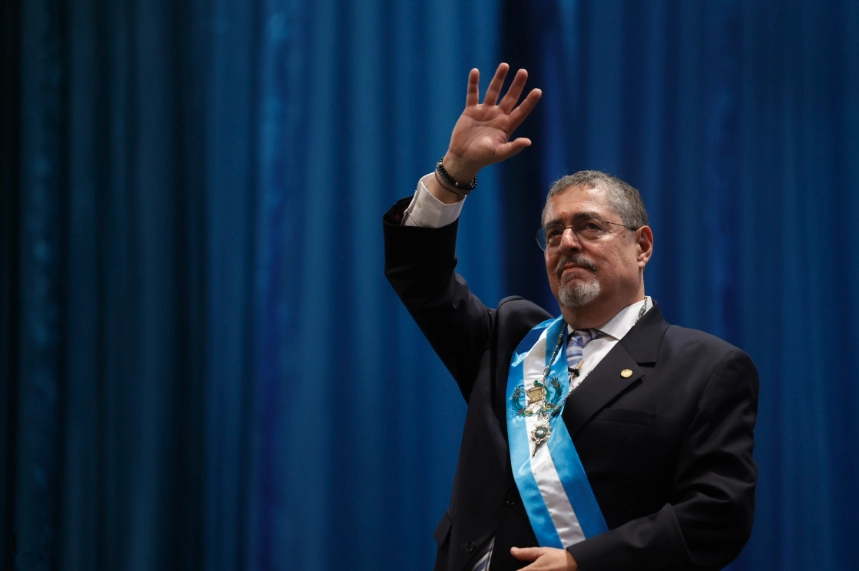After an electoral process marked by uncertainty, in which several candidates against the regime left the political arena, Bernardo Arévalo, who was not visible in the polls, slipped into the second round and triumphed, leaving the sensation that a different political future is on the horizon in the country. After his victory, such was the impetus with which attempts were made to prevent his inauguration, under political decisions disguised as legal ones by corrupt electoral and judicial authorities, even his swearing-in was delayed before midnight.
On January 14, the new president’s inauguration day, the opposition legislators tried to neutralize the deputies of the Semilla Movement with a series of tricks in the Congress of the Republic, to prevent them from competing for the Governing Board. However, in a skillful move, they managed to reverse the decision after a negotiation that finally allowed them not only to carry out the expected presidential election but also to take control of the Legislative Board of Directors. However, the Constitutional Court recently ordered to repeat the process due to the suspension that fell on the Movimiento Semilla Party and would leave them out of the Governing Board.
Who is Bernardo Arévalo?
Bernardo Arévalo is the son of former president Juan José Arévalo Bermejo, who held this position between 1945 and 1951. This was a result of the Revolution of 1944, which was part of what has been known in the history of the country as the “democratic spring”, a period in which an attempt was made to cement a very inclusive democracy for its time and which succumbed to the interests of the United Fruit Company that had the support of the U.S. government. The political project fell in 1954 with the overthrow of Jacobo Árbenz and the so-called Counterrevolution, led by Carlos Castillo Armas.
The fall of the government implied the exile of Juan José Arévalo, which led to the birth of Bernardo Arévalo in 1958 in Montevideo, Uruguay. The past seems to have become a strength for the current president, as it has allowed him to have a much more cosmopolitan and progressive vision for a country that has stood out for its strong conservatism, supported by the low educational level of a large part of its population.
Studying sociology in Jerusalem, working as a career diplomat, and having studied for a doctorate in the Netherlands are just some of the achievements on Bernardo Arevalo’s resume. In addition, in the last legislature (2019-2024), he served as a congressman of the Republic, being the head of his party’s bench, Movimiento Semilla.
Despite these achievements, his calm and moderate personality, in a society accustomed to conventional authoritarianism, did not allow him greater media exposure. It was not until he won his pass to the second round, as a result of the discontent of the population with the traditional political class and its corrupt practices, that he began to gain prominence with the help of young deputies, such as Deputy Samuel Pérez (31 years old), who positioned him in social networks among the Guatemalan youth.
In the elections, Bernardo Arévalo was able to capitalize on the discontent with corruption, abuse of authority, and the inability of previous governments to solve the most basic problems of society. A society mired in mistrust, poverty, the historical marginalization of its indigenous peoples, and the instrumentalization of the figure of God and religion as a mechanism to legitimize the plundering of public institutions. All this has generated the loss of credibility of Guatemalans in their institutions that have been used discretionary to commit any misdeed, without any respect for the democratic rule of law.
A sense of hope
Today, in addition to a new president, there is a sense of hope that the country can be recovered. On the other hand, the corrupt and profiteers of the state are plotting a series of actions, articulations, and negotiations to try to reverse this hope, and the fear of criminal prosecution is more than evident.
The challenges are not few and several were already mentioned by President Arévalo in his inauguration, in which the outgoing President Alejandro Giammattei himself was absent. Obvious lags in education, health, public safety, the fight against drug trafficking, human and arms trafficking, the necessary improvement in food and nutritional security indicators, and the inclusion of indigenous peoples in the decision-making process — a key player in the transition of power — and infrastructure improvements, are some of the problems faced by Guatemalan citizens and must be addressed in the short term.
The new government has announced that it will announce the primary results in the first three months. However, this does not seem feasible considering the complexities of the state itself. It must be considered that the state apparatus is plagued by unions with spurious interests, civil servants who will try to hinder the various ministries and secretariats, an Attorney General’s Office that will probably continue to stalk the members of this political project, and deputies accustomed to corruption and abuse of power.
The challenge is not minor. But this is a great opportunity for President Arévalo to lay the foundations for a much more pluralistic, inclusive, and participatory democratic transformation for Guatemalan society. In this line, the first thing must be to recover the institutionality of the state.
Today, there is a glimmer of hope after the darkness of the last governments in Guatemala, but expectations must be cautious. What we can consider in the short term is a different way of doing politics and of seeing our politicians doing politics. It sounds like a tongue twister, but it makes sense.
*Translated by Janaína Ruviaro da Silva from the original in Spanish.











